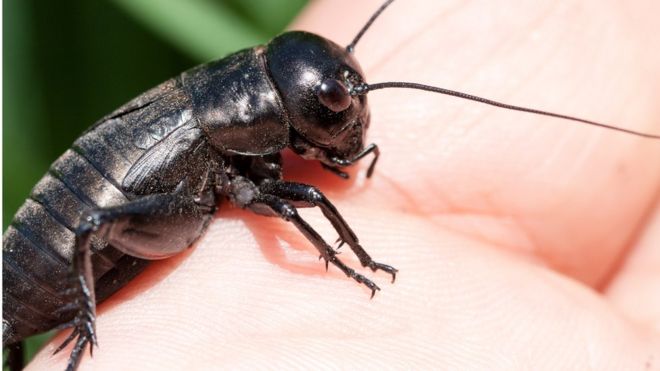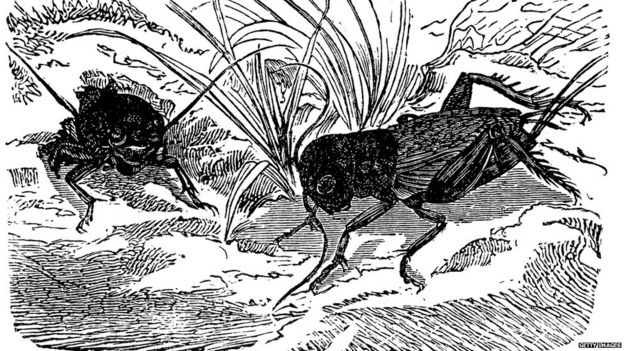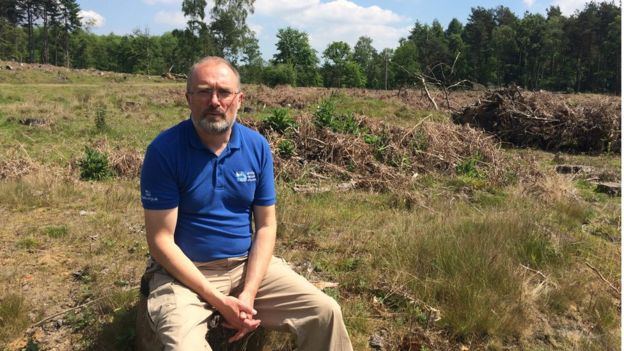 The cheep, cheep, cheep of a cricket in the grass is the quintessential sound of summer.
The cheep, cheep, cheep of a cricket in the grass is the quintessential sound of summer.
As I crunch over heathland in search of the elusive insect, the song fills the air, as if conjured up by a magician.
My companion, Mike Coates, the warden here at RSPB Farnham Heath, beams with delight.
Earlier, before setting out for the reserve, he'd warned me that the insects are rare, and might not perform on cue.
"It's not so much looking, we're going to be listening mostly for the sound of male field crickets chirruping in order to attract a mate," he explained, over a mug of tea in the staff portacabin.
"It's just a brilliant noise. It's like summer translated into sound - it's fantastic."
Silent summer
The song of the field cricket was once a familiar soundtrack on the heaths and grasslands of south east England.
However, the sound has fallen silent in many parts of the country.
The 18th Century naturalist, Gilbert White, wrote of "field-crickets shrill on the verge of the forest" in his diaries. Here, not far from the village of Selbourne in Hampshire, where White lived, the insects were once common.
Here, not far from the village of Selbourne in Hampshire, where White lived, the insects were once common.
 Here, not far from the village of Selbourne in Hampshire, where White lived, the insects were once common.
Here, not far from the village of Selbourne in Hampshire, where White lived, the insects were once common.
The founding father of British natural history writing recorded in 1791: "May 29: The race of field crickets, which burrowed in the short Lythe (a field near Selbourne), and used to make such an agreeable shrilling noise the summer long, seems to be extinct.
"The boys, I believe, found the method of probing their holes with the stalks of grasses, and so fetched them out and destroyed them."
Today the field cricket, Gryllus campestris, faces threats beyond torturous children.
In the last century, changes in land management and loss of natural habitat have led to a dramatic decline of the insect across northern Europe.
By the 1980s in the UK, field cricket numbers had dropped to fewer than 100 individuals, all found only in one location in West Sussex.
A decade later, conservationists began catching young field crickets and moving them to new sites across Surrey, Sussex and Hampshire in a bid to save them.

